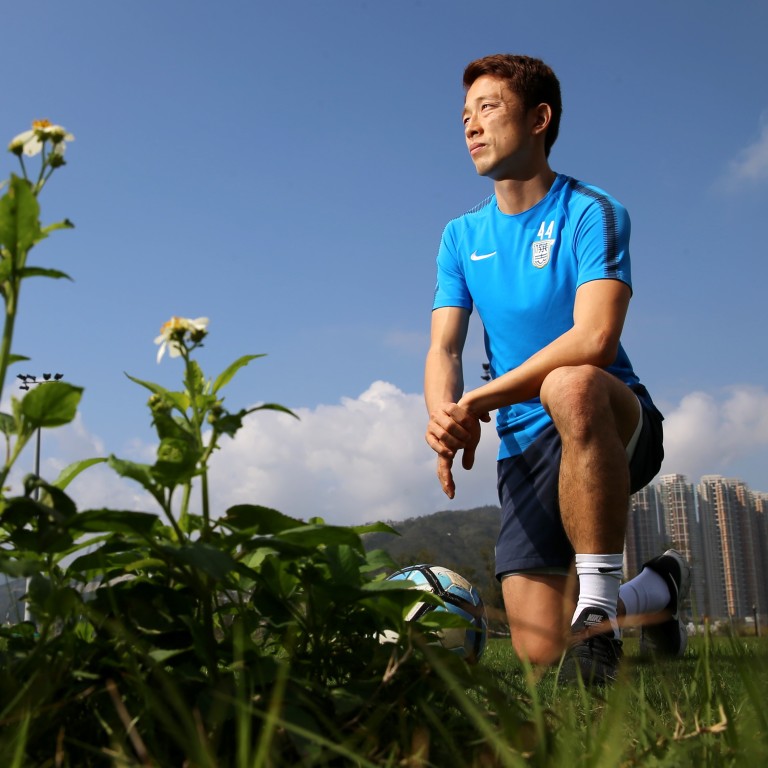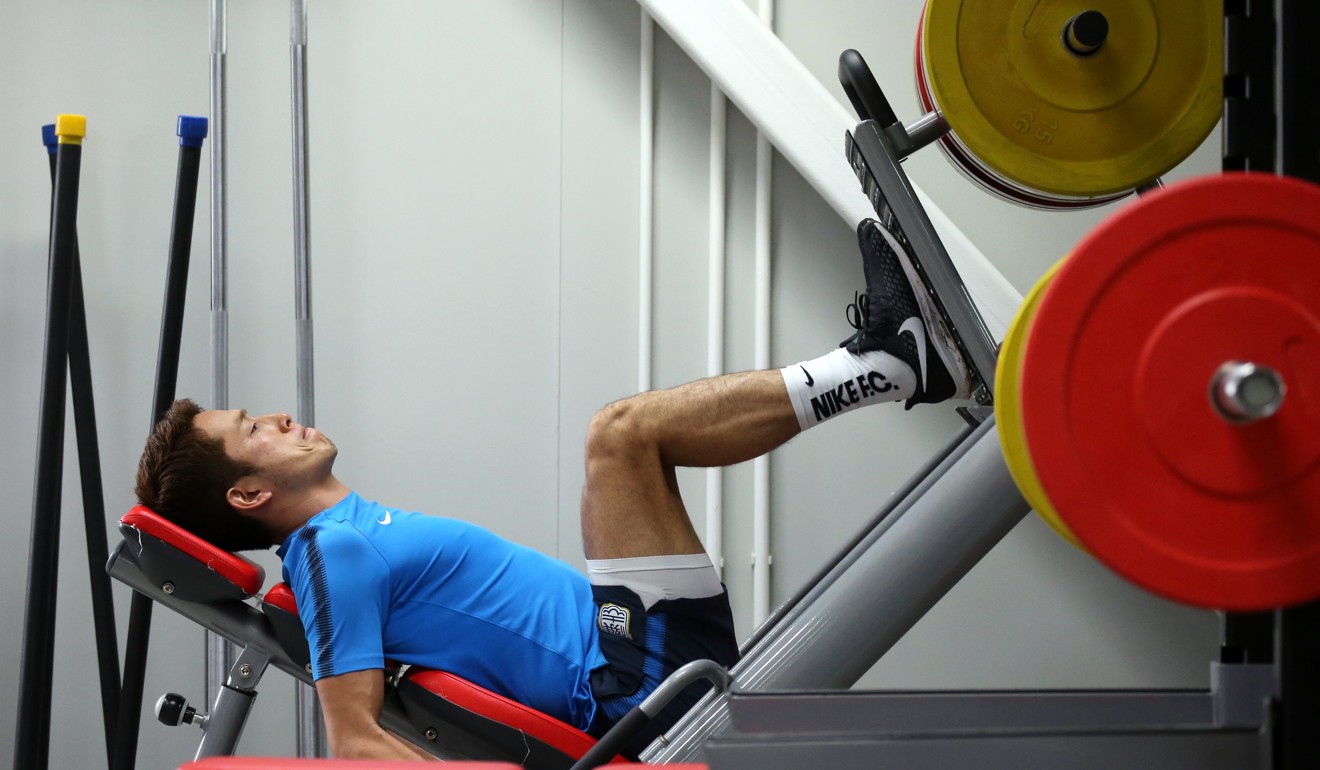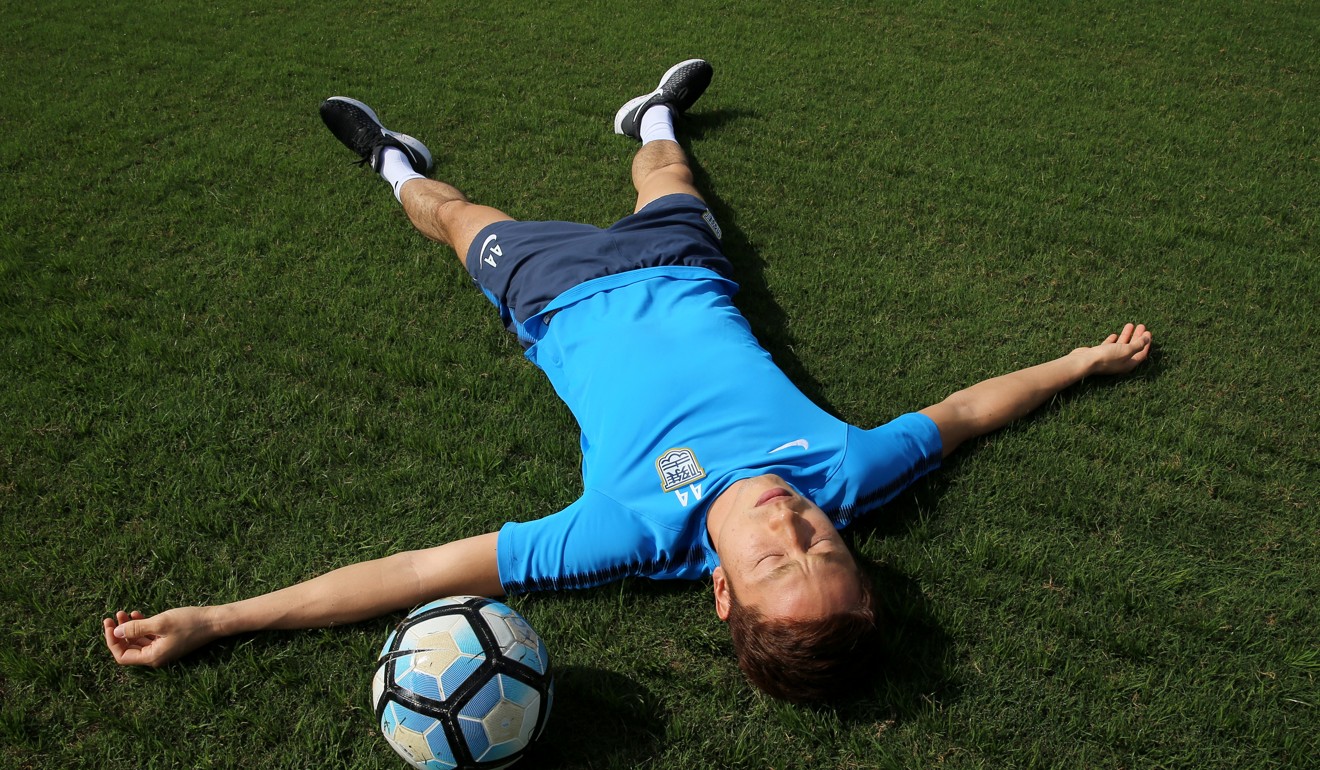
Japanese soccer player Yuto Nakamura hopes to bring his adopted city Hong Kong to the highest stage in the sport
- Nakamura recently got his Hong Kong passport after nearly 10 years living here, paving the way for him to represent Hong Kong in international soccer
- The 32-year-old says a love of food helped him settle in the city
Kitchee striker Yuto Nakamura considers himself a Hongkonger, and has the SAR passport to prove it; last October, he gave up his Japanese citizenship to take Chinese nationality in Hong Kong.
As a growing number of young Hongkongers aspire for new lives in far-flung places, the 32-year-old professional soccer player believes Hong Kong is the place to be.
“I am proud of Hong Kong. I hope Hongkongers can be proud of their city, too,” he says.
Hong Kong has given him the opportunity to play soccer professionally.
He first came to the city a decade ago, when he signed for the then fledgling TSW Pegasus.
Unable to speak either English or Cantonese, Nakamura found a language he shared with the locals: a mutual love for food.
“When I first got here, I had ‘mapo’ aubergine every day,” he recalls. His other local favourites are dim sum, iced milk tea, French toast and fried rice.
Nakamura frequented a neighbourhood bakery when he lived in Wan Chai.
One time, he was running a high fever and unable to leave home, so the owner delivered congee to his doorstep.

“Neither of us could speak English well, but, sometimes, language doesn’t matter,” he says.
Since then, Nakamura’s English has improved a lot, thanks to his supportive teammates at various clubs.
He recently began taking weekly Cantonese classes at a language school, and supplements his courses with YouTube videos and Cantonese songs.
“Of course learning Cantonese is difficult. But Cantonese is the language of my home now.”
Growing up in Kashiwa in the Greater Tokyo area, Nakamura wanted to be a football player for as long as he could remember.
His father Shuzo was a celebrated player, and is now general manager of one of the top clubs in Japan’s J-League, Urawa Red Diamonds.
Hong Kong are punching way below their weight and can learn from Iceland
The younger Nakamura says his father backed his decision to play for Hong Kong, and gave him an electronic dictionary as a parting gift to help him get started in the strange city.
In 2009, Nakamura left Hong Kong briefly to play in Portugal, but did not get much game time and found the culture alienating.
“It was every man for himself. But I believe in sacrificing personal goals for the team, which is what Hong Kong clubs tend to do.”
He returned to play for Pegasus, and has stayed in Hong Kong ever since, playing for various local clubs such as Citizen, South China, Tai Po and, most recently, Kitchee.

It was also in Hong Kong that Nakamura met his wife, Moeka, a Japanese native, in 2012 at the ramen shop where she worked. Two years later, they tied the knot.
“It was love at first sight. We might even like to have children here someday.”
But there are also times when Hong Kong disappoints Nakamura.
“I don’t like how Hongkongers don’t clean up after themselves after a game or training. They always leave bottles and rubbish everywhere.”
Japanese football fans have been known to clean stadiums up after matches.
Nakamura believes these small acts of consideration are keys to greatness: “If we want big things like championships, we should first learn how to take care of the small things.”
Toil trumps trickery for Hong Kong’s hardworking Jaimes McKee
He also admits he took a while to get used to cultural norms. For example, in Japan, people would address seniors with the honorific suffix “san”, but not here in Hong Kong.
“Teenagers would just call me ‘Yuto’ without ‘san’. At first, I thought it was disrespectful, but now I understand.”
Learning curves aside, one thing is for sure: Nakamura’s new identity as a Hongkonger has taken root. He is now intent on helping get Hong Kong to upcoming tournaments, including the 2022 World Cup and the Olympics, taking place near where he grew up, in Tokyo.
“I hope I can help bring Hong Kong pride. If Hongkongers were more proud of their city, maybe they would be encouraged to stay to work and play for Hong Kong.”

